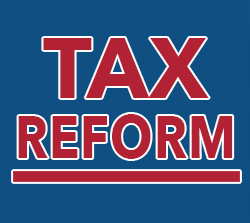Employment expert explains why more workers are freelancing…but is it a good idea?
 The amount of people relying on freelance gigs for their sole salary has increased steadily in recent years. By 2021, over 9 million Americans are expected to be part of the country’s ‘gig economy,’ in which workers cut ties with companies and work for themselves. And, President Trump’s new tax reform could hasten and increase this growth, but what impact could that have on workers and company growth?
The amount of people relying on freelance gigs for their sole salary has increased steadily in recent years. By 2021, over 9 million Americans are expected to be part of the country’s ‘gig economy,’ in which workers cut ties with companies and work for themselves. And, President Trump’s new tax reform could hasten and increase this growth, but what impact could that have on workers and company growth?
“There is a provision in Trump’s tax law which will allow sole proprietors (including freelancers like Uber drivers, graphic designers, consultants, etc.) to deduct 20 percent of their revenue from their taxable income,” explains Rob Wilson, employment trends expert and President of Employco USA, an employment-solutions firm based in Chicago, IL.
Wilson explains that this tax provision could add up to thousands of dollars in savings each year. “In addition, this tax provision will be beneficial for bosses who are looking to save on payroll costs. By switching workers from salaried employees to contracted freelancers, they can save big…and workers will have less reason to complain, as they can earn more money under the new provision as well.”
 Employco’s newest team member:
Employco’s newest team member: Employment numbers have been very encouraging lately, but
Employment numbers have been very encouraging lately, but 
 It’s a month since President Trump’s tax reform went into effect. So how have these changes impacted the average American worker?
It’s a month since President Trump’s tax reform went into effect. So how have these changes impacted the average American worker? Governor Scott just signed a bill making it legal to smoke marijuana recreationally in the state of Vermont. They join 8 states along with the District of Columbia which have adopted laws legalizing marijuana for recreational use. Many other states allow marijuana use in some form such as for medical purposes.
Governor Scott just signed a bill making it legal to smoke marijuana recreationally in the state of Vermont. They join 8 states along with the District of Columbia which have adopted laws legalizing marijuana for recreational use. Many other states allow marijuana use in some form such as for medical purposes. Last week, immigration officials descended on almost 100 7-Eleven stores in 17 states. They carried notices requiring owners of these establishments to produce hiring records for their employees within 3 days.
Last week, immigration officials descended on almost 100 7-Eleven stores in 17 states. They carried notices requiring owners of these establishments to produce hiring records for their employees within 3 days.